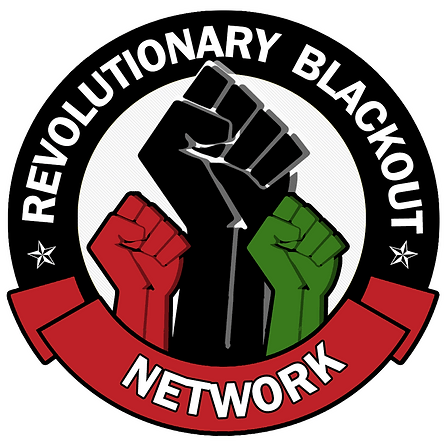China has 21 nuclear reactors under construction which will have a capacity for generating more than 21 gigawatts of electricity, according to the International Atomic Energy Agency. That is two and a half times more nuclear reactors under construction than any other country.
I love that China is not planning to power all future demand with more coal and gas.
Our aversion to nuclear energy PR wise has been a disaster. It’s very difficult for the general public to fully buy into nuclear power with all the misinformation spread about it. Hope we start to slowly veer back towards it.
But it’s not the general public who is averse to nuclear, they’re as a whole, probably more in favour of it. The current Swedish governmrnt campaigned on it. It’s nuclear companies themselves who don’t want it. Which is partially why Sweden suddenly and quietly scrapped their plans.
It’s nuclear companies themselves who don’t want it.
Wait what why?
It’s not profitable. For example, in Sweden, the companies involved aren’t interested. There was talk of EDF being restructured a couple of years back separating the unprofitable nuclear away from their other businesses (until state bailout and investment). Their CFO resigned over their decision to carry on building UK’s latest nuclear powerplant. The Conservatives only pushed through the UK’s next nuclear powerplant only after giving EDF assurances and ability to start taking in profits before the completion of the project.
This is what it takes to build nuclear. A lot of state money… Whereas renewables are cheaper, easier, and faster to decarbonise.
Okay but how’s their safety?
I’ve got no reason to believe they’re doing anything dangerous. I found this piece which indicates that they did a review in the wake of Fukushima. Sounds like things were adequate but they also found things to improve. Do you have reason to believe China is not taking safety seriously in there nuclear energy program?
Following Fukushima, however, Beijing immediately suspended approval of all new nuclear power projects while it undertook a comprehensive safety review of existing and under-construction nuclear power plants, as well as research reactors and fuel cycle facilities, and developed its Twelfth Five Year Plan for Nuclear Safety. In June 2012, after gaining approval of the State Council in principle, the National Nuclear Safety Administration released drafts of the Nuclear Safety Plan (Chinese here) and the “Report on Safety Inspection of National Civilian Nuclear Facilities” (Chinese here) for public comment.
As discussed in the Safety Inspection report, the safety inspection took over 9 months and covered 11 areas of safety, including site selection and external event evaluation; flood and earthquake resistance capacity; extreme natural disaster prevention and protection; electricity blackouts and emergency plans; severe accident prevention and mitigation; environmental monitoring systems; and emergency response system effectiveness.
The report concluded that operating reactors “basically fulfill” China’s nuclear safety laws and regulations and the International Atomic Energy Agency’s most recent standards, that they have the capacity to respond to design-basis accidents and severe accidents, and that safety risks are under control. However, in spite of these conclusions, the inspection report and nuclear safety plan also identified areas for improvement. In particular, the nuclear safety plan lays out short- (by the end of 2012), mid- (by the end of 2013) and long-term (by 2015) tasks to strengthen safety for operating and under-construction plants, research reactors and fuel cycle facilities.
Do you have reason to believe China is not taking safety seriously in there nuclear energy program?
If the China government were doing the wrong thing, would Chinese scientists and engineers be safe to say so, or would they be subject to imprisonment and torture for disagreeing with their political superiors?
Without freedom of political speech there is no freedom to tell the truth on matters of political controversy. This includes environmental and safety issues.
It goes the other way too. The Chinese government harshly punishes those who take dangerous shortcuts that undermine public safety and trust. The 2008 baby formula scandal comes to mind, which led to the execution of two executives for their crimes.
Anyway, nuclear power has proven to be very safe under all types of government. To say that it would somehow be less safe in China is maybe just a little bit sinophobic.
White man wonders if yellow man can do things white man can. News at 11.
That’s kind of true, but the Chinese government is probably competent enough to not mess with nuclear safety.
Yes? Unlike in the US, whether to care about safety or health aren’t political issues.
Also, the punishment for severely fucking up isn’t a small fine or imprisonment, it’s execution. If Fukushima happened in China, heads would literally roll. That’s a pretty strong incentive to not fuck up from the plant manager/architect/designer standpoint.
I get it, you don’t like China. They’re still a big player in global emissions and I’m still glad they’re not meeting their complete energy demand with coal/ng. You should be too.
The ability of chinese scientists and engineers to act in their roles without interference from the state is offtopic. If you want to talk about that, go make a thread about it.
ability of chinese scientists and engineers to act in their roles without interference from the state
In a discussion about plant safety that is relevant, surely.
China’s safety record in other energy sectors is poor. This is presumably not on purpose. What reason is there to believe it will be better at managing nuclear?
Probably on par with how the other safety stuff in the country is. Bad, not talked about, and actively suppressed if discovered.
The only reported incident has been from one of the European designed EPR reactors, which had a faulty fuel cladding that released some radioactive steam within the system.
Other than that, they’ve been pretty good. The main reason the reactors are safe is because we’ve designed them, especially with post-Fukushima improvements, to have a lot of passive safety built in by default.
Post-Fukushima improvements include, in addition to baseline passive nuclear safety, things like being able to take direct strikes from artillery without melting down. That’s also in addition to the natural disaster proofing we’ve done for earthquakes, floods and tsunamis. We’ve generally done a good job of over-engineering our reactors so that we can minimize any potential disasters.
China is ahead because of their advanced manufacturing economy. They literally build every single reactor component in house and don’t have to really rely on any outside companies for basically anything.
They have mostly North American designed reactors, ranging from CANDUs to their version of the Westinghouse AP-1000. Westinghouse basically went bankrupt trying to make the AP-1000 a viable reactor and when they started slipping, China came in and bought the schematics, modified them, and that’s their primary reactor design these days.
If you look at all the reactors worldwide that are being built, the majority of them in Europe are massively behind schedule for various reasons that probably get ignored by the Chinese. For example, one of the reactors in France is multiple billions above budget and about a decade behind due to the lack of precision of the builders, forcing them to re-assess and re-build key structural components multiple times over.
Western intelligence should organize Chinese labor.
It is important to keep in mind that, because they are copying the Westinghouse AP-1000 design several times, they can keep costs low as most construction issues have already been ironed out. They also get to build expertise by having a long program rather than just building a one off.
Well, all the reactors in Europe are supposed to be of a similar design – they had a big push to make the EPR reactors, which are a pressurized heavy water system, which is a bit old fashioned and requires a decent amount of passive safety to be built into the system. One of the first of those series to function was actually the one built in China which saw very few cost overruns and was generally finished within the original timeframe.
Why doesn’t everyone just import Chinese labour for their nuclear power plants then?
Because that never comes for free. At least you are now depending on the chinese companies for support for very critical infrastructure.
For the construction, right? That’s the whole, right?
The US won’t stage a comeback by sticking to outdated designs. Try something newer and safer with less waste, like a pebble reactor.
deleted by creator
Great to see nuclear is being talked about more as an option than something to be scared of.
deleted by creator
Placating the populace (ie, averting a revolution) is the CCP’s main objective. Civil unrest is the number one thing that keeps Chinese officials up at night.
It’s still overall, a small part of their grid. They don’t have plans to expand their nuclear fleet all too much. A good chunk are experimental, and for military research.
Not sure what this has to do with the price of tea there
Overall, probably cheaper, as it requires less tax to help pay for the cost of nuclear infrastructure.
deleted by creator
Renewables?
@Arcturus nice pfp
In what universe filling the world of solar panels and huge huge huge batteries is cheaper or quicker or less polluting?
To me it seems when nuclear power price is considered it is always the highest that can be found while for renewables weirdly it does not consider a lot of factors.This one? In what universe would, planning to build nuclear, and then later finding out how impractical it is, or eventually building a plant, only for it to take nearly two decades, be cheaper, quicker, or less polluting?
It alone will generate 14% of what the entire nation needs for at least 60 years and probably much more time.
How many times you have to replace the (very green?) batteries needed to store power for an entire nation in 60 years? And the solar plants and others?They started it, they completed it and now suddenly 14% of their energy is truly carbon free. For probably a century.
And once you build one, building another one won’t take so much time.In theory, when it’s working, yes it will. Only after being over a decade late and being everal times over budget. They’ll probably keep it going for as long as humanly possible, until the cost of maintaining it is no longer economically feasible. They’ll try to claw back as much of that investment as possible. But as we know with nuclear projects, they never will. It’s why China is betting big on renewables.
You think nuclear powerplants don’t require parts replacements, maintenance, or shut down over the weather either? France, US, and Finland had to delay the opening of their latest plants because they already had to replace parts before they even started. This isn’t Finland’s first nuclear reactor. Their next one has been cancelled because of the war in Ukraine (Rosatom) The others are being throttled down for maintenance, and it won’t be long until this new one also requires it. As it is, they’re already understaffed.






